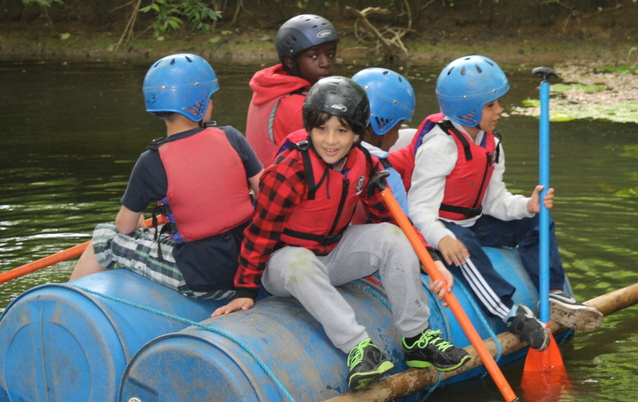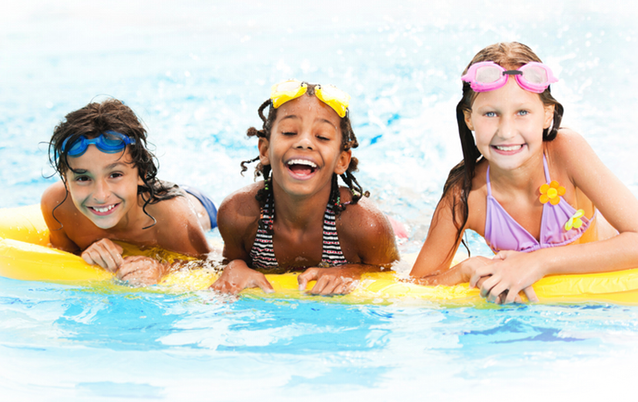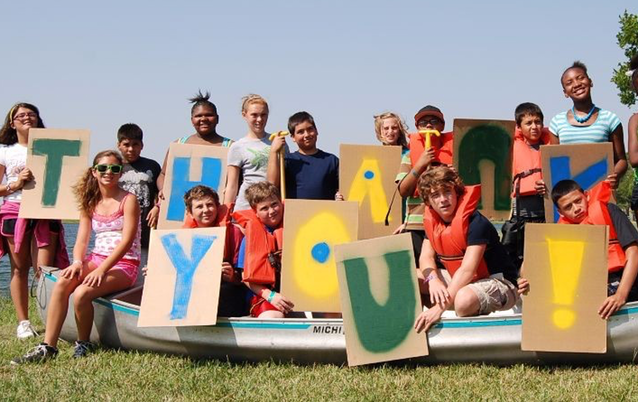How to Prepare your Special Child for Summer Camp
Updated on June 28, 2018You’ve done the work! Found a summer camp for your child with special needs – read the reviews, checked their references and researched like crazy! Next up? Preparing yourself – and your child – for the big day.
And packing. There’s going to be packing!
Here are 10 Tips from Real Moms to help you out:
1. “Start giving your child information and prepping them for camp early.”
Social stories are great starting points, and can be combined with a visual schedule to show your child that they are going somewhere for summer camp. If the camp has a video or website, start sharing the routine of the camp, and add it into the story/schedule.
A visit to the camp can also be very helpful; it not only gives the child visual cues, but also prepares them for the car ride to/from camp.
2. “Let your kid know you’ll be checking up on them regularly! Emphasize that they can always contact you if they’re unhappy or afraid.”
You don’t want to fill your child’s head with dire warnings, but it’s important for them to know you are only a phone call away if needed. To balance this out, talk about the good things in camp – the other children they’ll meet, the fun activities, and the counselors who want them to have a great time.
3.“Don’t be afraid to share information with the Camp Staff.”
Good camps WANT to know your concerns. The more information they have on your child, the more they know about triggers or behaviors or calming activities, the more likely your child will have a great camp experience.
Talk to your doctor, specialists and therapist for their input. Offer suggestions to camp staff for ways to counteract situations that are stressful for your child. Once you’re done with your list, ask the camp what they need to know. They might have a question you haven’t thought of!
On drop-off day, take the time to meet the counselors and staff. Answering and asking questions at that point can often reveal some of the most important information.
4. “Don’t forget to include your doctor’s phone number if you are leaving medication at the camp for your child.”
If your child takes medication (whether daily or in emergencies), make sure you leave all of his or her doctor’s contact information with the camp – office number, answering service and if possible, a back-up doctor if the first isn’t available. Talk to the medical staff to find out how they deal with scenarios such as medication that has gone missing, or how they should refill prescriptions.
5. “When it comes to packing, lists are your very best friend!”
Start with the camp requirement list – every camp has one. Mark or label everything! From underwear to larger items, use something that won’t come off (sorry label makers).
Consider carefully before sending expensive, heavy or breakable items.
6. “Double check with the camp – because they may have a limit – but send back-ups if you can!”
If there are items which factor into relaxation, sleeping or soothing, consider a back- up tucked into the suitcase. Find out about the laundry situation – if a favorite blanket gets soiled, who washes it? What’s the turnaround? Then, pack extras accordingly.
7. “Buy a special treat, or item that cannot be used until camp.”
A flashlight, a toy, new equipment for a sport – whatever the new item is, put it in the child’s suitcase as a reward for the countdown to camp.
8. “Don’t assume you can call your kid any time you want. Know the camp rules about communication.”
Some camps restrict the contact between parents and children while camp is in session. Make sure you know the camp’s policy! Don’t assume that because it’s a camp for special needs children they will bend their rules. If that is a non-negotiable point for you, it’s best to know in advance.
If other forms of communication are customary – letters, for example – and they are not a part of your child’s skill set, speak to camp officials about alternatives.
9. “Don’t underestimate your child! Camp can be a freeing and unique experience. “
So maybe your child with special needs doesn’t enjoy the zoo. Alert a camp counselor that this has been your experience but trust the camp and your child to make an attempt under entirely new circumstances.
Maybe sharing the zoo – or the lake, or arts and crafts – with new friends, changes your child’s enjoyment level. They just may surprise themselves and you.
10. “Take a deep breath and enjoy your summer.”
Sometimes camp is most difficult for moms and dads! The urge to call the camp every few hours to check on your child is a feeling that won’t go away so easily. First times are especially hard!
Don’t be rough on yourself. Process the change in routine, then try to have some fun!
AngelSense creates a safer world for children with special needs, with a wearable GPS tracking and listening device, a web app and smart analytics.





